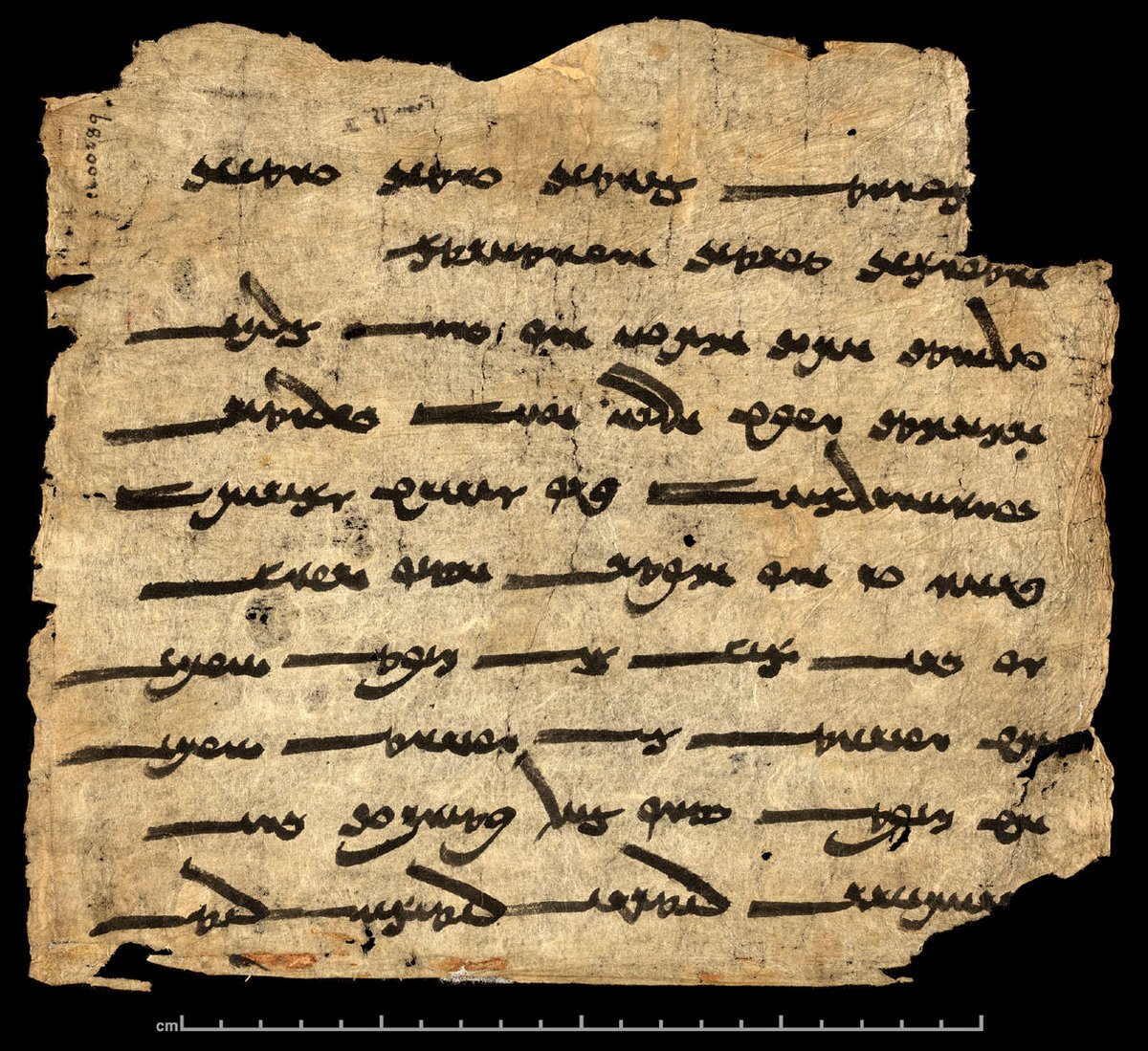1/14 In manuscript studies, we sometimes encounter a seemingly unintelligible text, the decipherment of which requires a bit stretching of imagination, and the result of which may surprise us all.
2/14 A case in point is Or.8212/84 (= Ch.00289), also known as Fragment 4, a Sogdian manuscript from the cave library of Dunhuang.
3/14 As is clear from the image, the ms contains ten lines of clearly and beautifully written Sogdian text. Line 2-10 is a beginning of a tale, in which Zarathustra goes to the paradise and addresses an unnamed supreme god. Nicholas Sims-Williams translates the text as follows:
4/14 “At that time, when the king of the gods, the famous, skillful supreme god, was residing in the sweet-smelling Paradise in Good Thought, there cam thither the perfect, righteous Zarathustra, paid homage to him, from the left knee to the right, from the right knee to the left
5/14 and addressed him thus: “O God, beneficent law-maker, justly deciding judge…”
6/14 Though Zoroastrian in appearance, this text was probably a Manichean one, as Nicholas Sims-Williams sharply discerned in his edition of it.
7/14 The first two lines, however, are incomprehensible in Sogdian. They read as follows:
1 … mwγš myšt’y wšt’y wšt’’y
2 ’štwγm’y twrt’y ’γwšt’yrtm
1 … mwγš myšt’y wšt’y wšt’’y
2 ’štwγm’y twrt’y ’γwšt’yrtm
8/14 Ilya Gershevitch brilliantly recognized that if one changes the word boundaries within these two lines, they appear to be a rendering of the aṣ̌əm vohū prayer of Avesta in a form of Sogdian much older than the rest of the manuscript.
9/14 The aṣ̌əm vohū prayer is the second of the four great prayers of the Zoroastrians. Even today, it is known by heart by most, if not all, practicing Zoroastrians in its Old Avestan form: aṣ̌əm vohū vahištəm astī uštā astī uštā ahmāi hyat̰ aṣ̌āi vahištāi aṣ̌əm,
10/14 which Gershevitch translates as: “Truth is the best possession: spontaneously Truth belongs at (his) wish to him whois best toward Truth.”
11/14 The Manichean author of the manuscript may have heard it recited by Zoroastrian Sogdians and jotted it down without knowing its meaning nor the word boundaries.
12/14 Gershevitch even argues that this prayer could have been pan-Iranian and pre-Zoroastrian, and that’s why it’s transmitted in a form of old Sogdian, and not in Avestan as expected.
13/14 Be as it may, these mere two lines are by far the earliest Zoroastrian text that we have.
14/14 Reference: Nicholas Sims-Williams, “The Sogdian Fragments of the British Library.” Indo-Iranian Journal 18 (1976): 46-48. Ilya Gershecith, “Appendix.” in ibid.: 75-82.

 Read on Twitter
Read on Twitter


